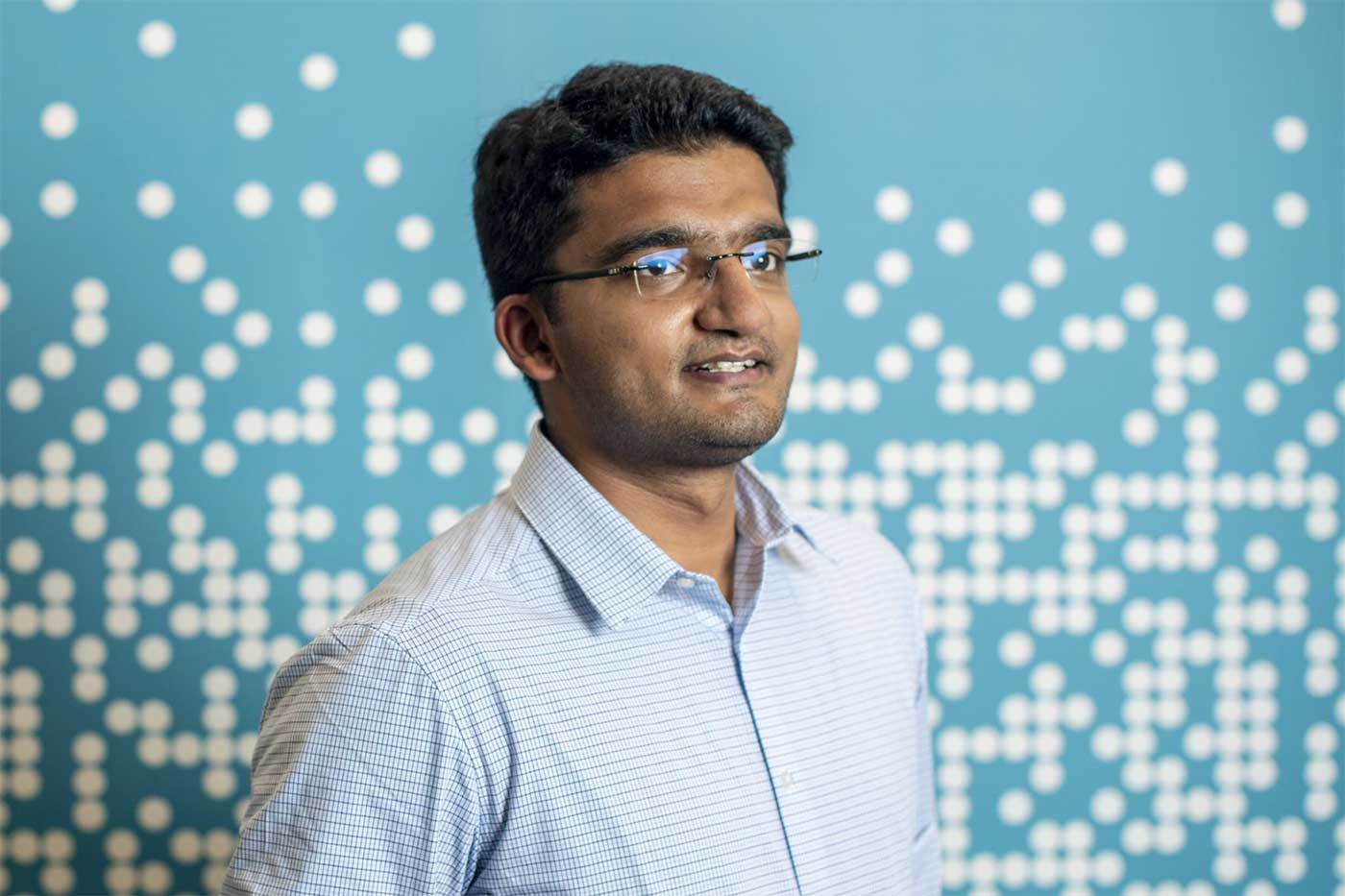Want your phone’s exercise notifications to pop up at useful times? Varun Mishra has an answer
Author: Sarah Olender
Date: 03.15.23

Just a year after completing his doctorate in computer science at Dartmouth College, Varun Mishra, now a professor jointly appointed between Khoury College and the Bouvé College of Health Sciences, won an Distinguished Paper Award at UbiComp, the Association for Computing Machinery’s (ACM) conference on pervasive and ubiquitous computing. The award is given to the top papers published during the previous year in Proceedings of the ACM on Interactive, Mobile, Wearable and Ubiquitous Technologies.
Mishra and his co-authors won for their paper “Detecting Receptivity for mHealth Interventions in the Natural Environment,” in which they built machine learning models to predict when users would be receptive to engaging with smartphone-based digital health interventions. The team integrated those models into a chatbot-based digital coach, Ally, that delivered interventions aimed at improving users’ physical activity. They found that participants were up to 40 percent more likely to engage with interventions delivered at times when the models predicted that users would be receptive, as compared to interventions delivered at random times. They also found that after 17 or 18 days of learning how participants interacted with the app, those machine learning models outperformed the generalized, static models.
“This research is a perfect example of how to improve mobile health interventions by exploring models that help to decide on the fly when the right moment for the intervention has arrived,” the ACM award committee noted. “It reports findings from an in-the-wild study with 83 participants over three weeks and thus constitutes a core Ubicomp research contribution.”
READ: Powered by digital devices, Herman Saksono promotes exercise in underserved communities
Mishra collaborated with colleagues from ETH Zurich to follow up on their initial Ally study conducted in Switzerland. His colleagues’ exploratory analysis had shown that various contextual factors — like location, activity, and phone usage — were associated with participants’ receptivity to interventions.
While Mishra is excited to have his work recognized, he remains humble and takes the award as inspiration.
“It feels great that this work is recognized by a community like UbiComp, that it was good enough to actually be awarded,” Mishra said. “It helps validate my research agenda because my future research goals build on prior works, and that gives me more motivation and confidence to keep going forward with them.”
“These were very preliminary works,” he added. “These papers were trying to show the feasibility of this working or not. And now that we’ve shown that it’s feasible, the next pieces are more tricky in trying to optimize it for different types of interventions.”
Mishra also directs the Ubiquitous Computing for Health and Well-being Lab, an interdisciplinary research group between the Khoury and Bouvé Colleges. There, he and his colleagues are working to enable the delivery of effective digital health interventions for behavioral and mental health.
Subscribe to Khoury News
The Khoury Network: Be in the know
Subscribe now to our monthly newsletter for the latest stories and achievements of our students and faculty